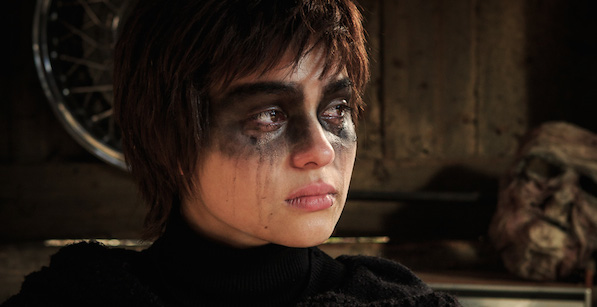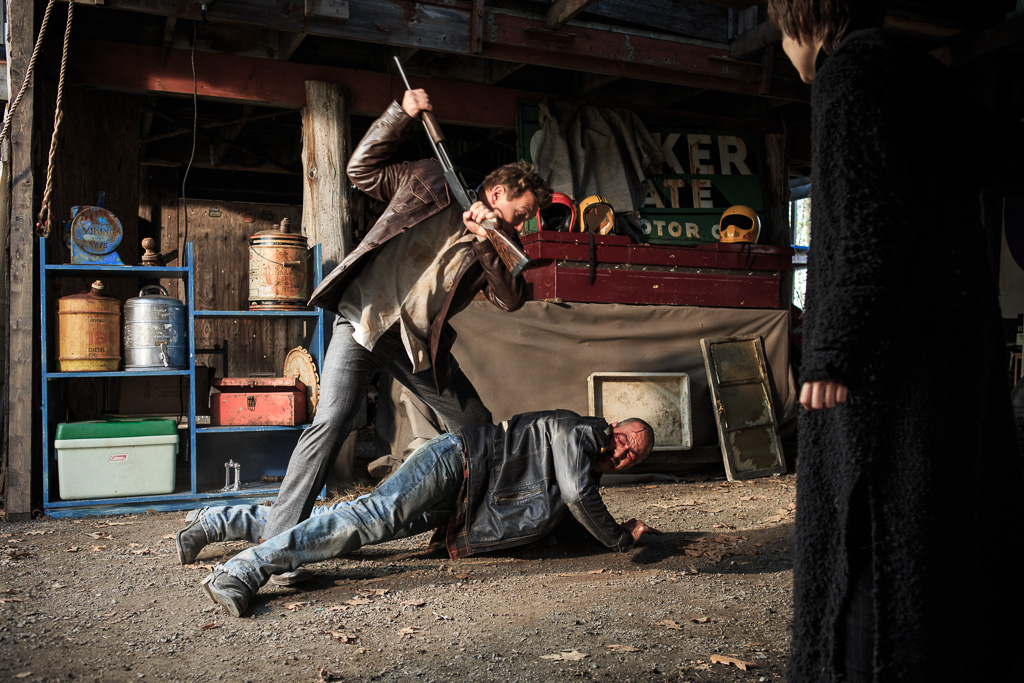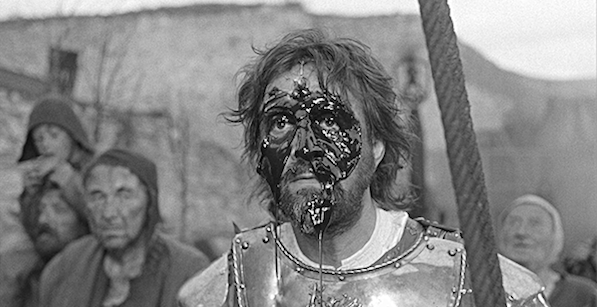
“The best films of the summer” promises Germany’s second biggest international film festival. Well, this time summer seems like a long forgotten dream, drowned in the steady rain that has been hitting Munich for two days straight. Still traumatized by last year’s horrible opening film (I don’t want to talk about it), I preferred to miss this year’s opener, Jean-Pierre Jeunet’s The Young and Prodigious T.S. Spivet. It seems like I didn’t miss much: aside from the decadent buffet and free drinks post-film, I hardly heard anyone mention it afterwards. But then again, it is quite hard to make out any favorites or hidden gems. Not because there aren’t any, au contraire ma chére. This lack of orientation is due to the insane amount of films, special programs, homages and other extras. Attending this festival is akin to visiting some crazy cat lady who keeps constantly adding new kittens to her collection, where you are expected to keep track of all their names and personalities. But all you see is cats. So how does one proceed? The German way of course: precise logic, categorization, a good measure of Darwinian survival of the fittest and an immediate halt to any film fest related activity whenever there is a World Cup game that includes our own team or other teams we like (which is of course none).
So let’s categorize:
Homages are being made to no less than four elderly men this year (where are the ladies?). Two of them, Willy Bogner and Klaus Lemke, are home grown Bavarian personalities. While Bogner tends to portray the “schickimicki” (Bavarian slang for the rich and famous in-crowd), Lemke represents the alternative, wild German cinema of rebellion. With Walter Hill, Munich recognizes another cinematic rebel, this time from Hollywood, for his achievements in the art of making groundbreaking genre cinema. Swiss producer Arthur Cohn on the other hand is mainly recognized for having an incredible Oscar track record of six golden boys. All in all very interesting artists, yet they fail to bring the always hoped for attributes of glitz and glamour with which the film fest would love to adorn itself. But behold, there is some glitter in the air, for they have invited another man, an artist and work of art in himself: Udo Kier, who received the CineMerit Award basically for being Udo Kier—an outstanding, flamboyant, charming, larger-than-life personality whose film career includes work with Fassbinder, Warhol, Schlingensief, Spielberg and many other great auteurs.

But one should not dwell too much on names and past feats of cinematic awesomeness. Especially not at this festival with its 158 films, many of which have already made a name for themselves at other big festivals such as Toronto, Sundance, Cannes, Venice, San Sebastian and Rotterdam. Munich’s “best films of the summer” are a crème de la crème conglomeration of favorites from other fests. Nothing wrong with that though, as quite a lot of these films, despite being of great artistic value, will never see the light of projection in a cinema in Germany. Take the most outrageous mistreatment of cinematic art, the case of Jonathan Glazer’s amazing Under The Skin, as an example. Whereas this film is hitting cinemas in quite a few European countries, the German rights owner is only going with a limited DVD release, arguing that the film doesn’t interest enough people to justify any investment in promoting the film. Here, at the fest, Glazer’s highlight was shown three times—each of them completely sold out days before the screening. Here lies the importance and changing function of film fests in Germany (and elsewhere). They have become the only place to screen independent films, art and experimental films as well as foreign films, in cinemas. It is heartbreaking to see that, according to the distributors, there is no “market” for the works of masters like Rotterdam high-flyer Aleksey German (Hard to be a God), Hong Sang-soo (Our Sunhi), Locarno winner Albert Serra (Story of my Death) and Naomi Kawase (Still the Water), let alone for smaller films crafted by newcomers, like Jeff Barnaby’s Rhymes for Young Ghouls. Barnaby’s film will probably never see a release here, in spite of being such a rich coming-of-age drama that it even surpasses the renowned Winter’s Bone in its bleak depiction of reality. Barnaby stages this tale with a primarily amateur cast in a real location, a Mi’kmaq reservation in Canada, where 15 year old Aila takes over her father’s drug deals when her mother kills herself and her father ends up in prison. Rhymes is a perfect mixture of elements of coming-of-age, intergenerational trauma and family revenge, paired with harsh reality and the rudiments of Mi’kmaq beliefs. Never does Barnaby take the cheap route of victimizing his protagonist. The film rather gives her all the power to bite, fight and pull through in her struggle for freedom and dignity.

The German film entries did not prove to be even remotely as powerful. After last year’s surprisingly young and daring films, this year returned to conservative and mediocre stories that left a stale taste on the tongue. Some, like Das Hotelzimmer, had good ideas but buried them alive, while others were nothing but the umpteenth reboil of familiar fare. The only highlight: Franz Müller’s Worst Case Scenario, a messy but fun takedown of the German film scene. It is truly embarrassing that the word-of-mouth buzz at the festival favored a TV movie over the entire cinematic line-up. Somebody do something! We used to be forerunners and innovators! Now almost all we produce is cinematic snot. I want to love German cinema again. Badly! Give me more Love Steaks! End rant.
A much stronger group is made up of the countless international independents, with American ones leading the pack. Hopefully the fest will join up with Leiden Film Fest and the American Film Fest in Wroclaw, Poland, who both just announced a cooperation to bring more indies to Europe. Michael Tully’s Sundance favorite Ping Pong Summer scored with its 1980s theme and Susan Sarandon menacingly wielding a dead fish and connected perfectly with German audiences. David Gordon Green’s Joe however did not. This is mainly due to its hard American accents, especially that of front runner Nicolas Cage, who is also known for his extraordinary mumbling skills. To many audience members’ despair there were no German subtitles, which lead to only two things standing out for this film: Cage’s portrayal of yet another bum with poor social but remarkable drinking skills and a film plot that seemed like a bastard child of Mud and Gran Torino. Remarkably funny and tear-jerking at the same time, The Skeleton Twins on the other hand was surprisingly insightful about suicidal depression. However Jon Favreau’s Chef really won everyone over the most, mainly because of the film’s love for meat. After all this is Bavaria, home of the Weißwurst and other meaty craziness.

But fear not, non-American indies, Munich loves you too. From Morocco to Spain, Ethiopia to Russia, the fest represented quite a broad overview of world cinema. My personal favorite: Isaho Takahata’s The Legend of Princes Kaguya. Takahata spent eight years drawing every single frame by hand. His style is a remarkable mix of Studio Ghibli animation style and Japanese ink drawings. However, Russian director Aleksey German’s Hard to be a God exceeds Takahata in both film length and production time. Having spent thirteen years making this immense 177-minute masterpiece, German died during post-production at age seventy-four. His magnum opus is a crazy piece of black and white frenzy, breaking loads of cinematic rules while keeping its audience marveling at its nature and existence. Just like I keep marveling at this fest: overloaded and crazy as it is, I can’t help but like it.



